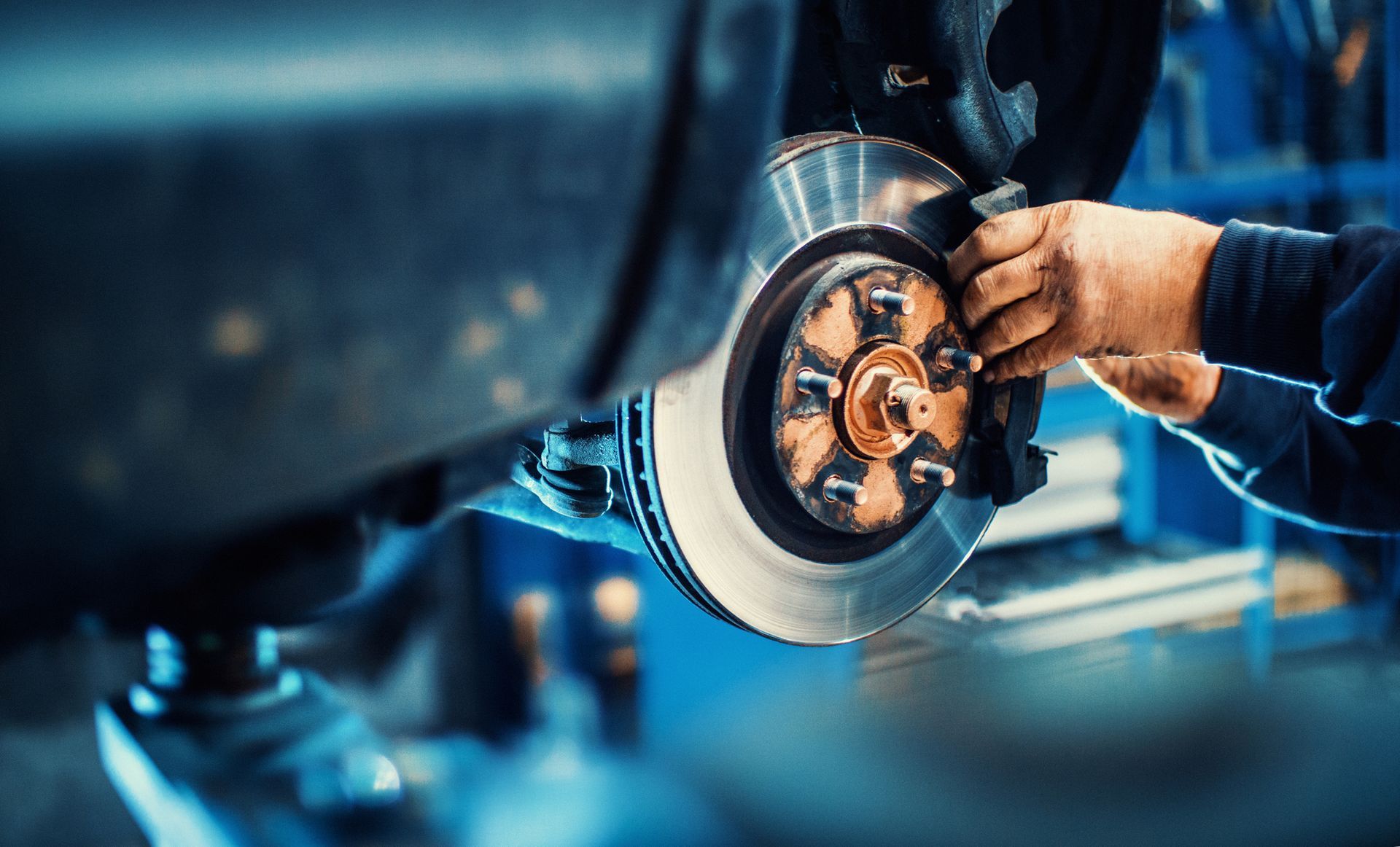Call Now: (414)-321-5450
Demystifying Automotive Suspension and Steering: Your Guide to a Smooth Ride
Your vehicle's suspension and steering systems are critical for both comfort and control on the road. From absorbing bumps to maintaining stability in turns, these components play a fundamental role in your driving experience and safety. Let's delve into the world of automotive suspension and steering to understand how they work and why proper maintenance is essential.
The Basics of Suspension
Your car's suspension system consists of several components that work together to provide a smooth and stable ride:
- Springs: Springs absorb bumps and shocks from the road surface. Common types include coil springs and leaf springs.
- Shock Absorbers (Dampers): Shock absorbers control the movement of the springs, preventing the vehicle from bouncing excessively after hitting a bump.
- Struts: Struts combine the functions of springs and shock absorbers into a single unit and are a common feature in modern vehicle suspensions.
- Control Arms: Control arms connect the suspension to the vehicle's frame or body, allowing for movement while controlling the wheel's motion.
Key Functions of Suspension
- Comfort: A well-maintained suspension system absorbs road imperfections, providing a smoother and more comfortable ride for passengers.
- Handling and Stability: Proper suspension geometry ensures stability during cornering, minimizing body roll and maintaining tire contact with the road.
- Braking Performance: A good suspension system helps distribute weight evenly, optimizing braking performance and reducing stopping distances.
Signs Your Suspension Needs Attention
Recognizing symptoms of suspension issues can prevent further damage and maintain road safety:
- Excessive Bouncing: If your vehicle bounces excessively after hitting a bump, it could indicate worn-out shocks or struts.
- Uneven Tire Wear: Uneven tire wear patterns can result from misaligned or worn suspension components.
- Pulling or Drifting: A vehicle that pulls to one side or feels unstable during turns may have worn control arm bushings or steering components.
- Noises: Clunking, squeaking, or knocking sounds when going over bumps can indicate loose or damaged suspension parts.
Understanding Steering Systems
Your car's steering system allows you to control the direction of the vehicle. Key components include:
- Steering Wheel: The driver uses the steering wheel to control the direction of the vehicle.
- Steering Column: Transmits the driver's input to the steering gear.
- Steering Gear: Converts the rotational motion from the steering wheel into lateral movement of the wheels.
- Tie Rods: Connect the steering gear to the steering knuckles, enabling the wheels to turn left or right.
Importance of Steering Maintenance
Proper steering maintenance ensures precise control and responsiveness while driving:
- Safety: A well-maintained steering system reduces the risk of accidents by allowing the driver to maneuver the vehicle safely.
- Alignment: Regular wheel alignment prevents premature tire wear and ensures the vehicle tracks straight.
- Ease of Handling: Smooth and responsive steering enhances driver comfort and reduces fatigue on long drives.
Routine Suspension and Steering Maintenance
To keep your suspension and steering systems in top condition:
- Schedule Inspections: Have a professional inspect your suspension and steering components regularly, especially if you notice any signs of wear or malfunction.
- Replace Worn Parts: Replace worn-out shocks, struts, control arms, tie rods, and steering components promptly to maintain vehicle safety and performance.
- Wheel Alignment: Check and adjust wheel alignment periodically to ensure even tire wear and stable handling.
Conclusion
Understanding and maintaining your vehicle's suspension and steering systems is essential for a safe, comfortable, and enjoyable driving experience. By recognizing signs of wear and scheduling regular maintenance, you can prolong the life of your car's suspension and steering components while ensuring optimal performance on the road. Remember, a smooth ride starts with a well-maintained suspension and steering system! Schedule a check-up for your vehicle today to keep it running smoothly for miles to come. Drive safe!


CONTACT INFORMATION
HOURS OF OPERATION
- Mon - Fri
- -
- Saturday
- -
- Sunday
- Closed
BROWSE OUR WEBSITE
CONTACT INFORMATION
HOURS OF OPERATION
- Mon - Fri
- -
- Saturday
- -
- Sunday
- Closed





